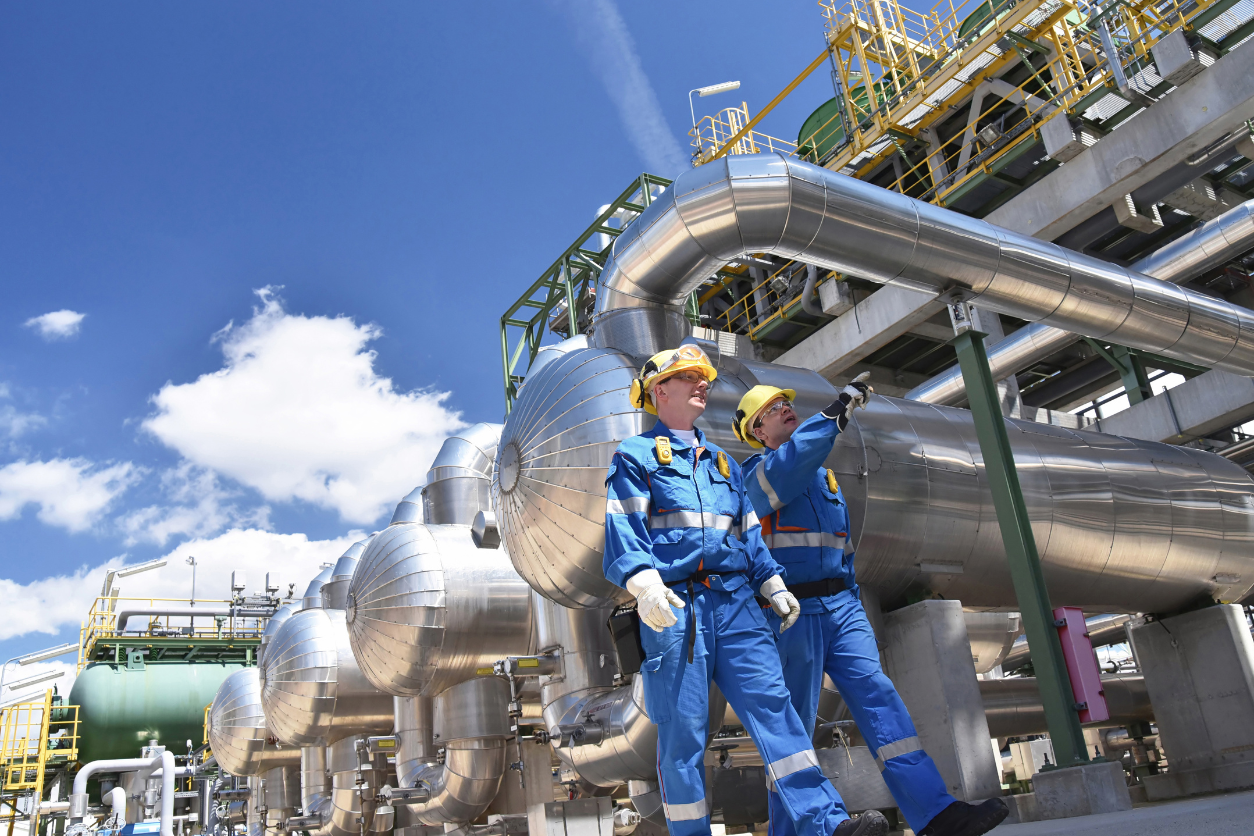Oil & Gas Case Study
Client Profile
With rising global demand, highly volatile prices and increasingly strict environmental regulations, the oil and gas industry face three major challenges: reduce costs, optimize the performance of its industrial based assets, and improve its environmental footprint and compliance. A solid M+R foundation with equipment performance strategies are critical factors to overcoming these challenges.
Challenge
Summary of Top Challenges Faced:
- Varying use of technologies across business units
- Broken Management Operating System
- Lacking business and asst performance reporting
- Siloed operations with no alignment on philosophy
- Inconsistent organization structure with roles and responsibilities
- Significant execution delays resulting in high labor consumption.
- Unstructured and non-standardized business processes in work management
Approach
- An initial assessment was conducted to understand the unique challenges from the client, and common industry issues that affect the organization. It helped us to develop a tailor-made solution.
- Conducted field observations to closely assess the root causes to overcoming the challenges coming from remote and dispersed locations and comparing to Best Practices.
- Performed data analysis on many data formats to validate and complement the field observations, as well as to develop a realistic business case.
- Several workshops were conducted to map out current processes, assess the drivers that will generate the highest benefits, and identify what it will take to collaboratively implement solutions.
- Designed and implemented a custom-tailored solution.
Scope
- Maintenance work management business processes and management operating system
- Reliability business processes and management operating system
- Integrated turnaround standards from identification through closure
- Technology usage and sites integration
- Development of business operating standards for sustainability
To establish an effective maintenance and reliability program, we developed a plan for improvement based on business operating processes, worked with the client team to prioritize assets, defined the maintenance requirements, allocated resources to specific areas, and worked with the respective resources to deploy our tools. We evaluated maintenance strategies for Preventive Maintenance (PM), Regulatory Maintenance (RM), and Predictive Maintenance (PdM) to reduce failure risk or performance degradation of assets, and measured success along the way for continuous improvement.
The objectives of our program focused around delivering the future vision including:
- One way of maintenance management supported by efficient organizational structure with common roles for sustainability of repeatable performance.
- Proactively planning business operations to have control of efficiency and effectiveness and predictability in performance.
- Structured methodology for asset health performance with leading and lagging indicators to aid in making future-based decisions and optimizing asset performance.
- One asset strategy comprehensiveness of all intervention activities that can be traced through actual performance to improve the performance of assets.
- Strategic path forward based on business value for reliability, turnaround, and CMMS path forward.
Solutions
- Management Operating System
- Training & Development
- Predictive & Prescriptive Tools
- Digital Enablement
- Work Process Digitization
- Integrated Information Flows
- Performance Management
- Core Competency Assessments
- CMMS Implementation Strategies
- Reliability Best Practices: Asset Criticality, FMEA, RCFA, MTA
- Maintenance Best Practice Business Processes
- Organizational Efficiency Restructuring
- Turnaround Stage Gate Management System
Solutions implemented from the methodologies:
- Step 1 – Design and install a foundation
- Step 2 – Create performance visibility and management into the foundation
- Step 3 – Provide expert instruction for the future of data structure
- Step 4 – Align the CMMS to fit the business processes and performance visibility
- Step 5 – Transition to the system and provide coaching for sustainable adoption of the foundation
”Based on the results of our analysis, the implementation program was created to design, install, and implement “One Way” of working between the merged organizations following Best Practices in Maintenance and Reliability while adopting the technology systems required to create efficiency.
– Production Manager
Solutions Continued
Step 1 – Design and install a foundation
- Designed, Customized, and Implemented 13 level 6 Business Processes to fit the client’s operation that enable repeatable activities across the organization achieving execution of business objectives, and effective data collection for implementation of a reliability program and workforce efficiency.
- Developed with Business Process Modelling + Notation standards (BPMN).
Step 2 – Create performance visibility into the foundation
- Implemented a standardized management operating system with fundamental business elements for forecasting, planning, controlling, and reporting upon departmental and asset performance.
- Developed Key Performance Indicator’s (KPI) and scorecards that provided visibility over long-term impact of doing the right things at the right time.
Step 3 – Provide expert instruction for the future of data structure
- Established asset strategy elements for activities performed at all interventions of an asset’s lifecycle for the management of equipment performance.
- Provided instruction for how 13 business processes integrate to achieve the desired objectives of maintenance and reliability performance
Step 4 – Align the CMMS to fit the business processes and performance visibility
- Built and tested in the CMMS standard input and output form requirements to execute the business processes, adjustments made as required
One Point Lessons (OPL’s) created for custom configuration on “how to” perform each task in the CMMS contained within the business processes
Step 5 – Transition to the system and provide coaching for sustainable adoption of the foundation
- Implemented a CMMS system with data structure aligned to ISO 14224 and enabled business processes to be executed within the system.
- Continued providing weekly measurement of Process and System elements adoption with risk register management for any deviations
Results
- Realized 2% Reduction in Cost per BOE driven from maintenance general ledger accounts with greater cost benefits forecasted in the next 2-5 years.
- Realized a 2% Reduction in Production Loss Accounting System (PLAS) capacity due to maintenance downtime with forecasted benefits to achieve 5-7% increased available capacity.
- Through our evaluation and change management approach, the client was able to understand, adopt, and operate with best practices in maintenance management performing the right maintenance on the right assets at the optimal intervals with minimal resource consumption.
- Over time, the client is enabled to see reductions in asset expenditures, decrease in unscheduled or unplanned downtime, improved reliability to ensure uninterrupted production and limit risk of accidents through reliability efforts.
”We learned a lot through the journey of this program and can clearly see the benefits occurring. As with any change management program we had our ups and downs but As One kept us on track and we achieved the objectives of the program and can see further benefits heading into next year.
– Operations Manager









